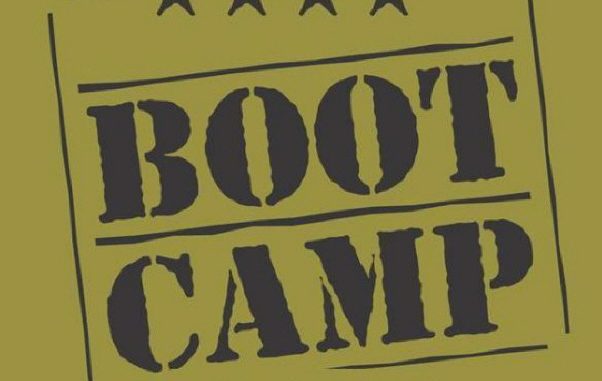
Are you prepared to
undertake a degree program at a Western university? Do you know what is
expected of you by instructors? Have you developed the academic skills and
base-line knowledge to succeed there? This boot camp will whip
you into shape so you can begin your university training in the West with
confidence. It is no-nonsense, fast paced, intellectually challenging, and is
designed to help you develop good study habits and answer all of your questions
about Western higher education. The course is Zoom-based, divided into 16
two-hour classes, thus comprising 32 hours of instruction.
Participants will come
away from this boot camp with a solid understanding of what will be required of
them while enrolled at a U.S. college and how to meet that challenge. Aside
from serving as an introduction to Western-based critical thinking, skills
conferred include the ability to take
effective notes, the ability to read critically, the ability to conduct
independent research, the ability to write an academic paper, the
ability to participate actively in problem-based learning, the ability
to collaborate on assigned group projects, and the ability to make
oral presentations. Students will also learn the basics of how colleges are
organized and function, as well as Dos and Don’ts while living in the
West.
TOPICS:
I. Academic
Preparation:
CLASS #1: Becoming an effective learner
- Western pedagogy: How courses are taught
at colleges in the West and what is expected of students
- Theories of Education
- What are the liberal arts? An overview of
academic disciplines
- Choosing a major
- Choosing courses
- Study skills
- Reading strategies
- Note-taking
- Test-taking
- Time management
- Research skills
- Writing papers
- Plagiarism/cheating/citing sources
- Collaboration with other students
- Making oral presentations
- What correlates to a successful first
semester at university?
CLASS #2: Developing
critical thinking skills
17. Learning from The Feynman Technique
18. Fields of Philosophy
19. The Overton Window
20. Symbolic
Interactionism
CLASS #3: Introduction
to Ethics
21. The Trolley
Problem
CLASS #4: Reason
and its limits
22. What is truth/How do we know what we
know? [Epistemology]
23. The Scientific Method
24. Contesting truth claims of science
25. Evolution and its consequences
26. Analogical Reasoning
27. Western Ideologies
CLASS #5: Organizing
society and maintaining order
28. Societal institutions
29. The market
30. Different socio-economic systems
31. The concept of value
32. Foundations of Macroeconomics
33. Foundations of Microeconomics
34. The Rational Actor model
35. What is social
control?
CLASS #6: Uncovering
meaning in the humanities
36. What is beauty?: Introduction to
Aesthetics
37. Literary Criticism: Ways to read a
text (close reading, Deconstructionism)
38. How to read a poem
CLASS #7: Decoding
different “texts”
39. How to read a film
40. How to read a painting
41. Understanding visual information
42. How to identify fake
news
CLASS #8: Information
in all its form: metaphor, references, bias
43. What is culture and why it matters
44. What is a “fact”?
45. Algorithms and truth
46. The mythology of Ancient Greece and
Roman and why it is important
47. The Christian Bible in brief:
Knowing the references
48. Brief History of the Visual Arts:
Knowing the references
49. Brief History of
Music: Knowing the references
CLASS #9: Creativity
and Communication
50. How to develop your creativity
51. Identifying the big questions
52. Framing problems
53. Breakthroughs in brain science
54. Breakthroughs in social psychology
55. Systems thinking
56. Developing debating skills
57. Game Theory
58. Useful idiomatic
expressions
II. Cultural
Preparation:
CLASS #10: Introduction
to Western politics
59. The American political system vs.
British vs. Canadian
60. Governing Constitutions
61. The role of the courts
62. Western legal principles
63. Critical Legal Theory
CLASS #11: Introduction
to Western society
64. Religion in the West
65. The media in the West
66. Race in the West
67. Sexuality in the West
68.
Environmentalism/Sustainability/Climate Change
69. Western foreign
policy
CLASS #12:
HOW TO guide to campus life
70.
Understanding American vs. British vs. Canadian College Culture
71.
Diversity, Equity, Inclusion
72.
American college traditions vs. British and Canadian college
traditions
73.
The role of sports in university life
74.
Getting help/using campus resources
75.
Taking advantage of instructor office hours
76.
Using the library
77.
Health care
78.
Mental health
79.
Campus residential life
80.
Food/meals
81.
Religious observance
82.
Bureaucracy
83.
Extracurricular activities
84. Greek life
CLASS #13: Adapting to life
in the U.S., UK, and Canada
85.
Visas
86.
Opening and closing a bank account
87.
Understanding and signing a lease
88.
Maintaining an apartment
89.
Driver’s license + car registration + car insurance
90.
Driving under the Influence (DUI)
91.
Racing cars
92.
Paying traffic ticket/fines
93.
Expected public behavior
94.
Behavior towards women
95.
Stalking
96.
What are considered insults
97.
Appropriate attire
98.
The meaning of non-smoking areas
99.
How to defuse threatening situations
100. Social media use
CLASS #14: The
particularities of American, British, and Canadian culture
101. Racism
102. Critical Race Theory
103. Slavery and the Jim Crow South
104. The debate over reparations for slavery
105. The Black
Lives Matter movement
106. Indigenous peoples
107. Affirmative Action
108. Guns
CLASS #15: The
particularities of American, British, and Canadian culture continued
109. Women in authority
110. Sexual harassment
111. The #MeToo movement
112. LGBT sensitivity
113. Pronouns: what they are and how to use
them
114. Religious tolerance
115. Private property: The rights of
homeowners/neighborhoods
116. How law enforcement works
117. The incarceration system
118. Important recent legal decisions in the
U.S.
119. The Post-pandemic West
CLASS #16: Review,
Diagnostic, Discussion, Q&A
Instructors:
Dr. Robert V. Fisher (Harvard University: Ph.D., instructor)
Jalal
Hosseini (Harvard
University: MPH and Associate Director for Educational Programs)
$995
Email robert@designsonlearning.com
for more information and course schedule.
